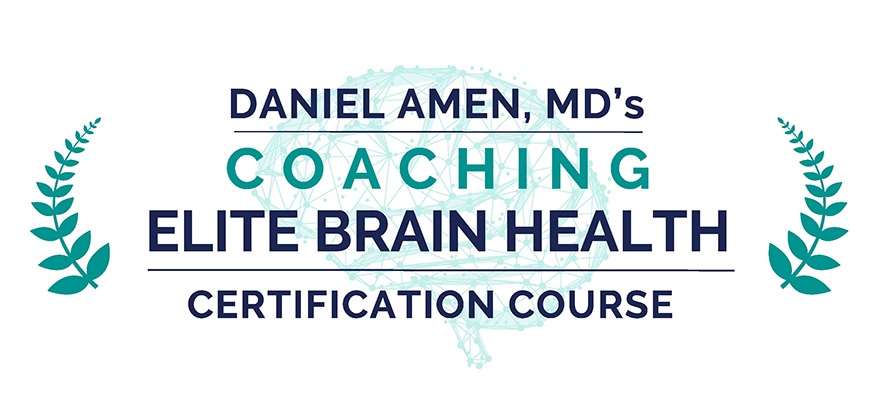
Anyone who works in nutrition has heard this confession more than once. A client leaves your office energized by a plan, ready to make changes, and convinced they can follow through. Then they return a week later and admit, with a sigh, that they slipped right back into old eating patterns. It is easy to assume they simply were not disciplined enough, yet the truth is more layered. The brain plays a major role in every food decision your clients make.
Mood, memory, cravings, stress responses, and daily habits all originate in the brain. When nutrition professionals understand these connections, they gain an extra set of tools that help clients move from knowing what to do to actually doing it.
Contents
Why Brain Awareness Belongs In Nutrition Counseling
Traditional nutrition plans focus on nutrients, portion sizes, and meal timing. These are essential, yet they do not explain why clients still reach for comfort foods after a stressful day or skip meal prep even when they believe in its benefits. The brain is the control center that influences all of these choices.
The Brain Guides Cravings And Eating Patterns
Your client’s brain is constantly making decisions about fuel, mood, and emotional needs. Low blood sugar, stress, and strong sensory cues can all trigger cravings. When clients reach for sugary or salty foods, it is often the brain trying to stabilize energy or soothe distress.
When cravings are viewed through this lens, the conversation becomes less about personal failure and more about unmet needs. Instead of asking why clients “lack willpower,” you can explore what their brain hoped to accomplish with that food.
Stress, Emotion, And Eating Behavior
Emotional eating is common because the brain remembers which foods bring temporary comfort. Stress chemistry can heighten appetite or push clients toward familiar choices. These habits form over time and become the brain’s default coping strategy.
A brain aware nutrition approach acknowledges the emotional load that clients carry. Instead of shaming them, you can help them understand those emotional triggers and experiment with new ways to meet those needs.
How Brain Health Shapes Nutrition Outcomes
Nutrition counseling is not just about giving information. Clients need support for planning meals, following through, and managing discomfort, all of which rely on healthy brain function.
Executive Function And Food Planning
Executive skills such as planning, prioritizing, and organizing help clients build realistic meal routines. When these skills feel weak, even clear guidance can feel overwhelming.
You can support these skills by:
- Breaking goals into small, predictable steps.
- Using templates, lists, or pre planned menus to reduce mental strain.
- Building routines that repeat from week to week.
These small supports help clients conserve mental energy as they build new patterns.
Sleep, Mood, And Appetite Regulation
Sleep has a significant influence on the brain systems that manage appetite and impulse control. When a client is exhausted, their cravings intensify, and their ability to make thoughtful food choices declines.
Simple conversations about bedtime routines, screen habits, or calming rituals can change the nutritional landscape dramatically. When clients understand why their tired brain pushes them toward quick comfort, they can respond with more compassion and better strategies.
Inflammation, Brain Fog, And Daily Decisions
Clients who live with chronic health issues, unstable blood sugar, or persistent inflammation often struggle with brain fog and low energy. These conditions make nutrition tasks feel far more difficult.
You can tailor your guidance for these clients by simplifying tasks, reducing choices, and offering ready to use meal ideas. This approach respects the limits of an exhausted or overwhelmed brain.
Practical Brain-Based Tools For Nutrition Sessions
Understanding the brain becomes most helpful when it shapes how you talk with clients and structure your appointments.
Normalize Brain Challenges Around Food
Many clients enter counseling believing they are flawed because they struggle to maintain healthy habits. You can ease this shame by explaining that the brain is wired to avoid discomfort and seek quick relief.
When clients realize their brain is trying to help them, not sabotage them, they often become more open to change.
Introduce Brain Friendly Food Concepts
Many foods support brain function, mood, and energy. You can keep the information simple while still offering meaningful guidance.
- Colorful fruits and vegetables that support antioxidant activity.
- Healthy fats from nuts, seeds, and fish that help cells communicate.
- Protein and fiber rich foods that keep blood sugar steady.
Helping clients see these foods as tools that support clarity and emotional steadiness often increases motivation.
Turn Brain Insights Into Action Steps
For brain knowledge to be helpful, it must translate into behavior. You can do this by working with your client to choose actions that are realistic and repeatable.
- Create one simple breakfast option after discussing blood sugar swings.
- Select two brain supportive snacks clients can keep nearby during busy days.
- Identify one non food soothing practice to try when emotions rise.
This keeps the counseling process grounded in daily practice rather than theory.
Supporting Long Term Change With Brain Aware Approaches
Sustainable change is not about perfection. It relies on helping clients build habits that remain steady even when life becomes stressful.
Prepare For Stress Filled Moments
Stress usually pushes the brain toward familiar choices. You can help clients prepare for these moments by building simple backup plans.
- Keeping a few easy meals or frozen options for hectic days.
- Choosing healthier options at favorite takeout places.
- Using calm breathing or grounding exercises to reduce emotional eating impulses.
These strategies help clients stay steady even when their brain feels overwhelmed.
Support Identity Shifts, Not Just Behavior Shifts
Identity strongly influences behavior. When clients begin to see themselves as people who care for their brain and body, their choices often shift naturally.
You can reinforce this identity by highlighting their efforts. For example, you might say, “You packed a snack instead of skipping a meal. That is something someone committed to brain and body health would do.” These reflections help clients update their internal story.
Use Curiosity When Setbacks Occur
Slip ups are common. Instead of letting clients fall into shame, you can encourage them to approach setbacks with curiosity.
Questions such as, “What was your brain needing in that moment?” shift the conversation from judgment to understanding. This prevents the emotional brain from dominating the moment and keeps clients open to learning.
Growing As A Brain-Aware Nutrition Professional
Clients increasingly want guidance that acknowledges the link between nutrition, mood, and brain health. By integrating brain insights into your work, you can offer deeper, more compassionate support.
There are many ways to learn more, from books and online courses to comprehensive certifications that connect brain health with behavior change. The most helpful resources turn neuroscience into actionable tools you can apply immediately.
When you combine solid nutrition science with an understanding of how the brain influences habits, you give clients the best chance for lasting success. This blend supports both the physical body and the emotional mind, creating a foundation for meaningful and sustainable change.

